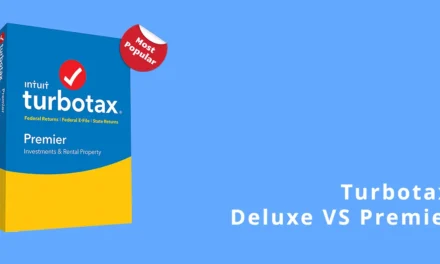Crypto Taxes have long Been a Headache for TaxPayers, Exchanges, and Regulators. Unlike Stocks or Bonds, Crypto Users Often Hold Assets Across Multiple Wallets and Exchanges, Transfer Frequently Between, and Engage in Complex Transactions Like Staking and Lending. This diversity has Made Tracking Cost Basic- The Original Purchase Price Used to Calculate Capital Gains or Losses-A Challenge.
After all, Imagine Calculating Your Stock Market Gains IF You Bought Shares From Five Different Brokers, Regularly Moved Them Between Accounts, And Sometimes Traded Directly with Other Investors. That's the reality for Crypto Investors, Who Have Had To Piece Together Transaction History from Multiple Sources, Often with Incomplete Records That Lead to Mismatches with Irs Records.
In 2025, the Irs Introduced Changes to Clarify the Process for Everyone. Revenue Procedure 2024-28 Will require all taxpayers to track their crypto cost basis on a wallet-by-wallet (or Exchange-by-Exchange). Unfitunately, some significant uppront work is necessary to make the transition. So, The Irs Provided “Safe Harbor” Rules to Help Ease the Transition.
This guide discusses these new rules, what they mean for your taxes, actions you should take immediately, and how to prepare for the latest requirements before the April 2026 tax deadline.
The Big Picture
The Irs Has Historically Tracked Cost Basis Across Across All Your Wallets and Exchanges. For Example, Imagine You Purchased One Bitcoin for Pennies in 2010 and Left IT in A Wallet. Then, in 2023, you started Accumulating Bitcoin for Six-Figure Prices on a Centralized Exchange. If you sold bitcoin in 2024 on the Exchange, The Irs Assumed You Were Selling the Original Bitcoin from 2010 Unless You Told Them OtherWise.
Revenue Procedure 2024-28 Requires All TaxPayers to Track Their Crypto Cost Basis on a Wallet-by-Wallet (or Exchange-by-Exchange). Like a Stock Brokerage, You would get Capital Gains (or be Able to Write Off Capital Losses) Based on the Purchases and Sales Within A Single Wallet Or Exchange Rather Than Having To Consider Your Entire Holdings. This dramatically Simplifies Reporting for Exchanges and Taxes for individuals.
The Challenge is making the Switch. In Essence, you have a stack of purchase receipts and need to match them to crypto assets across different wallets or accounts. The Agency's “Safe Harbor” Commission Offers to Opportunity to Choose Between Two options:
- Specific Unit Allocation. You can assignage particular receipts to specific crypto assets in specific whale. For example, if you Purchased One Bitcoin for $ 30,000 in 2021 and ANOTHER for $ 40,000 in separate wallets, you could choose the $ 30,000 Purchase to the Bitcoin in Wallet a and the $ 40,000 Purchase to the Bitcoin in Wallet B. You More control, It Requires Detailed Record Keeping.
- Global Allocation. You Apply a Consistent Rule Across All Your Holdings. For instance, you allocate the highest cost base first, the lowest cost base first, or allocation proportionally Based on the amount of crypto in each wallet. In other Words, you have a stack of receipts and Apply a consistent rule for distributing them Across Wallets.
The Decision Could Significantly Impact Your Taxes. If you have pilots with darying cost bases spread across wallets, your tax situation could be affected by which assets are in which wallets when the transition happens. Once you Decide, You Cannot Change Allocations Without Losing The “Safe Harbor” Protection and Opening Yourelf Up to Irs Trouble Down The Road.
Actions to take Now
The first step is to ensure that your 2024 year-end tax data is an accurate foundation. If you fail to record some transactions, update the information as soon as possible to ensure accuracy in 2025 and beyond. Without the correct starting data, you could potential have issues down the road when determining cost base.
For example, if you're using zenledger, you should review your Holdings in our platform's “Holdings” tab to verify they align with your wallet and Exchange Balances. If there are any missing transactions, you can manually add them or connect a wallet or Exchange to import them. (IF you don't use use a Crypto Tax Platform Like Zenledger, You Should Reconsider in Light of these Changes!)
Zen Ledger Makes it easy to track your taxes Across Wallets and Exchanges. Source: Zenledger
The next step is choosing between and global allocation.
The original IRS Guidance Required TaxPayers to Record the Cost Basis Rule They Planned to use by January 1, 2025. In Particular, The Agency Required TaxPayers to Sign and Date Their Decision and Keep IT in their Records in Case Of An Audit. Of course, The Challenge is that TaxPayers Don't Necessarily Know How to Classify Transactions Since the Year Just Closed.
On January 1, 2025, The Irs Granted Temporary Relief on This Guidance Amid Several Legal Challenges. The relief postpones the requirement that mandated crypto Exchanges default to first-in, first-out (fifo) accounting methods for capital gains calculation. This extension wants to Remain in Place Until December 31, 2025, Providing Exchanges with more time to act.
The Easiest Path Forward is to default to the global allocation method, which involves Establishing a Rule Across Your Wallets. For instance, zenledger automatically applied the lowest cost base to the largest wallets. However, there is still a lot of ambiguity surrounding the rules specific in Revenue Procedure 2024-08, and Immediate Action May Be Impectical Because you may not fully understand your 2024 transactions yet.
Fortunately, the New Deadline to Choose is January 1, 2026, and even then, the Irs Only Requires You To Document This Decision on Paper in Case of An Audit. Any Decision wouldn't have a material impact on your tax situation unil you sold a crypto asset in 2026, which is the hard deadline for specific unit allocation decisions. And the first actual reporting will occur when you file your 2026 taxes, Whether in April or the Extended October Deadline.
Preparing for the 2026 Tax Season
The New Wallet-to-Wallet Rules Go Into Effect for Transactions Made in 2025 and Reported on Your 2026 Tax Return. And Again, The New January 1, 2026 Deadline Provides Plenty of Time to Choose the Best Accounting Method for your Holdings. But, While Tax Filings Won't Be Necessary For More Than A Year, Preparing Ahead Can Help You Save Money.
Choosing between a specific unit or global allocation is only one piece of the puzzle. You must therefore select to Accounting Method to Follow, Such as FIFO (First-in, First-Out), Lifo (Last-In, First-Out), Or Hifo (Highest-in, First-Out). And this decision could therefore have a significant impact on your year-end tax obligation. (The Irs Default is fifo if you don't specific ether Whis.)
For example, fifo typicalall results in the lowest cost base if you're averaging into a rising market. This means you wouldn't have a ton of accrued unrealized capital gains sitting around in your portfolio. On the other hand, Hifo Could Be Valuable in Minimizing Your Current Capital Gains Taxes. The Right Decision Depends on your portfolio and your crypto trading strategies.
In some ways, tax preparation wants Be Easier Following These Changes. If you have crypto assets in Two Exchanges, you don't have have to worry about consolidating and matching up transactions across Exchanges to compute your capital gain or Loss. You can Simply Take the Cost Basis Data from Each Exchange At Face Value and Use It To Complete Your Tax Return Each Year.
However, More Complex Transaction Types Could Complicate Matters. If you have a software wallet, you may need a way to import and track transactions across these wallets. Or if you use Decentralized Finance (Defi) Or non-fungible tokens (NFTS), You Could require More Advanced Tracking Capabilities to Record Purchases, Sales, Staking, and Other Types of Transactions.
The Bottom Line
The Irs is introducing Major Changes to Crypto Taxes, Making compliance more critical. The Safe Harbor Provision Offers to Excellent Opportunity to Reset Your Tax Situation and Make Decisions that Could Help You Save in 2025 and Beyond. However, to Stay On The Right Side of the Law, You Must Document Your Holdings, Maintain Detail Records, and Consult with Tax Professionals.
If you Trade Crypto Assets, Zenledger Can Help You Organize Your Transactions for Tax Time. We Provide a holistic look into your enttire crypto portfolio While Ensuring you pay precisely how much you owe year. We can thus help you find tax-free harvesting opportunities to reduce your year-end tax burden.
Get Started Today for Free!
This material has been Prepared for Informationally Purposes ONLY and Should not be interpreted as professional Advice. Please Seek Independent Legal, Financial, Tax, Or other Advice Specific to your particular situation.





